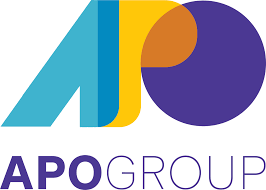The African Continental Free Trade Area (AfCFTA), an opportunity for Africa’s youth to accelerate trade and industrialization
Content provided by APO Group. CNBC Africa provides content from APO Group as a service to its readers and does not edit the articles it publishes. CNBC Africa is not responsible for the content provided by APO Group.
The African Continental Free Trade Area (AfCFTA) is an opportunity for young people to accelerate Africa’s industrialization and economic transformation through entrepreneurship, youths say, calling for an enabling policy framework.
Through its Youth Protocol, the AfCFTA recognises that young people can play a critical role in the achievement of the free trade zone by initiating youth-led initiatives in agriculture, financial technology, IT and in the creative industry.
However, they note that across the youth-dominant trade areas critical to the AfCFTA, the challenges of infrastructure gap, lack of access to modern technologies, funding, electricity and broadband internet keep the youth on the sidelines of the free trade area.
At an online presentation meeting organized by the Regional Integration and Trade Division (RITD) of the Economic Commission for Africa (ECA), nine young mentees who have completed RITD’s “Youth for AfCFTA Mentorship Programme”, presented their final assignment to senior staff in ECA. The youth participants highlighted that the AfCFTA presented huge entrepreneurship opportunities for them but that governments need to implement supportive policies and investment to ensure their participation.
Ms. Mie Vedel-Joergensen, Associate Expert in Economic Affairs, Market Institutions Section of the Regional Integration and Trade Division (RITD) at the ECA said mentees of the “Youth for AfCFTA Mentorship Programme” are winners of a competition launched in March 2022 which led to the mentorship programme in ECA. The competition with the topic; “The African Continental Free Trade Area (AfCFTA): What is in it for young Africans?” was developed by the Youth Alliance for Leadership and Development in Africa (YALDA) in collaboration with the AfCFTA Secretariat, Afreximbank, the International Trade Centre (ITC), the UN Development Programme (UNDP) and ECA. The competition encouraged participants to develop essays, infographics or animation to communicate the potential impact of the AfCFTA on youth in Africa.
According to YALDA, the competition aimed to break information asymmetry among youth on the AfCFTA and promote a bottom-up approach to the policy formulation and implementation by harnessing innovative youth-driven solutions that will contribute to active youth engagement in the popularization of the AfCFTA.
Noting that young people can influence policy decisions in favour of the AfCFTA in addition to providing labour, Ms. Jessica Debby Ndjadila, mentee of the Essay group, said Africa’s youth understood the technology enablers of the free trade area such as Information Technology, supply chain management, and financial technology.
“African governments should prioritize intellectual property rights protection,” Ms. Ndjadila said, calling for fiscal policies to drive entrepreneurs into content distribution and the democratization of access to broadband connectivity.
Africa also needs to operationalise the Pan African Payment and Settlement System (PAPSS), a centralized payment and settlement system for intra-African trade in goods and services developed in 2022. The platform would increase the competitiveness of and investment in youth-dominated start-ups in Africa.
Another group of youth developed an infographic to highlight the benefits of gender inclusion in the AfCFTA. Noting that Sub Saharan Africa was losing an average of $95 billion annually as a result of gender inequality, the youth felt that investment in mobile and digital solutions can bridge the gender gap in Africa where the proportion of women using the internet was 25% lower than men.
“Implementation of the AfCFTA would increase employment opportunities and wages for unskilled workers and help close the gender wage gap,” said Mr. Richard Muraya, a youth whose group developed an infographic highlighting the opportunity cost of gender inclusion in the AfCFTA.
Mr. Stephen Karingi, Director of Regional Integration and Trade Division at ECA said young people fully understand what the AfCFTA is all about and their information products should be promoted in giving policymakers the right narrative about the free trade area. Besides, the youth have well demonstrated the potential of the AfCFTA and the issues that must be addressed by the protocols developed for the realization of the free trade area.
Distributed by APO Group on behalf of United Nations Economic Commission for Africa (ECA).


 | Mon, 16 Jan 2023 13:19:25 GMT
| Mon, 16 Jan 2023 13:19:25 GMT